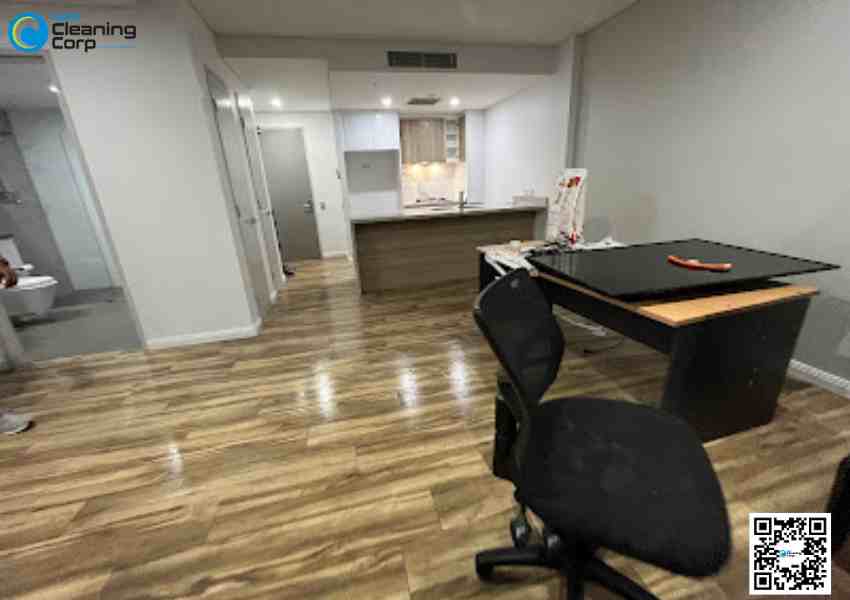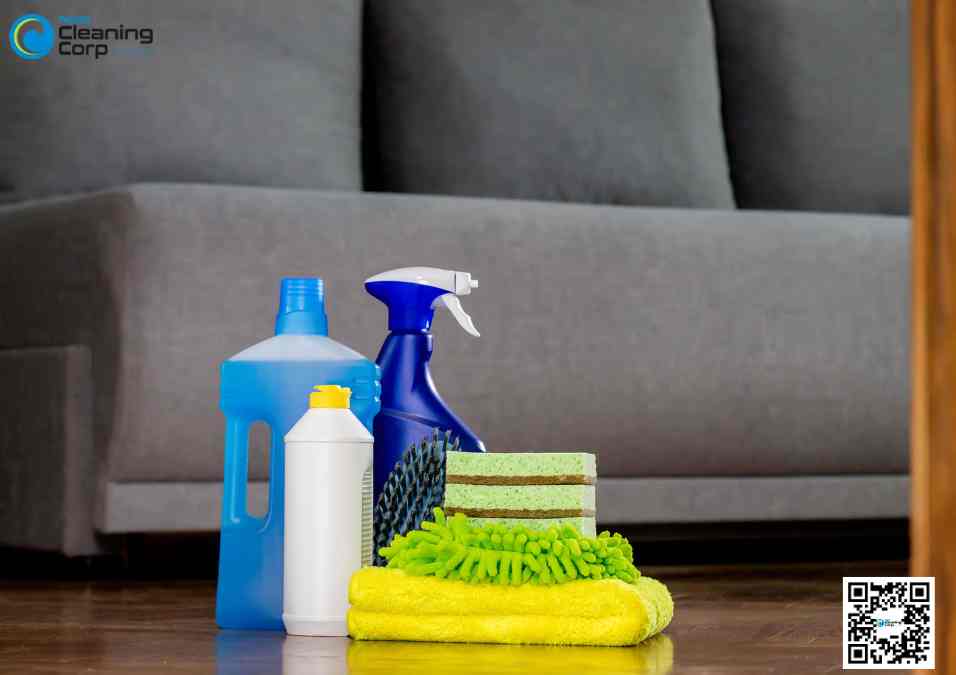Does the NDIS Fund Cleaning Services?
Yes. The NDIS does fund cleaning services — but it...
Creating a hygienic home environment with NDIS cleaning support is more than a service—it’s a path to a healthier, safer, and more comfortable space.
Imagine coming home after a long day, opening the door, and immediately feeling a sense of calm and security, knowing your space is clean and welcoming. This isn’t just about a spotless floor or a tidy kitchen; it’s about creating an environment where you can truly feel at ease, knowing it meets health standards that support your physical and mental well-being. For NDIS participants, a hygienic home isn’t simply a luxury; it’s essential to quality of life.

Many of us don’t realize just how much the cleanliness of our home affects our health. Dust, mold, and allergens can lead to respiratory issues, while cluttered spaces can increase stress and impact mental clarity. For people relying on NDIS support who may face challenges in mobility or have specific health needs, maintaining a clean and hygienic environment can sometimes feel overwhelming. This is where professional NDIS cleaning support steps in—not only to get the job done but to bring a sense of relief, knowing that all the small (but important) hygiene details are taken care of with care and respect.
This guide will walk you through practical steps for creating a truly hygienic home with NDIS support. From expert tips to real-life examples, you’ll find everything you need to make your space the healthiest, most welcoming it can be.
Cleanliness does so much more than make a home look nice; it plays a huge role in our physical and mental health. Think about it: dust and allergens that settle in carpets and bedding, bacteria that can build up in kitchens and bathrooms—these aren’t just nuisances; they can actually make us sick. Regular cleaning helps reduce the risk of infections, respiratory problems, and allergies. And if you’re dealing with any health conditions, like asthma, a clean home environment becomes even more important.
But it’s not only physical health that benefits from a clean space. A clean, organized home can improve mood, reduce stress, and even help us sleep better. Studies have shown that clutter can raise cortisol levels, a stress hormone. Ever notice how walking into a tidy room just feels good? That’s the impact of cleanliness on our mental health. A clean home creates a feeling of calm and control, which is particularly beneficial for people managing daily health challenges.
For many NDIS participants, keeping a home hygienic presents unique challenges. Mobility issues, medical equipment, or fatigue can make it hard to tackle the cleaning tasks that some of us may take for granted. For instance, someone using a wheelchair might find it difficult to reach high shelves or get under the furniture to clean those hidden dust bunnies. Or, if you’re managing equipment like oxygen tanks or specialized medical devices, ensuring a sterile environment becomes more critical but also more challenging to maintain on your own.
Take Mary, one of our NDIS clients, for example. She relies on a walker and has limited strength in her arms due to a medical condition. Even basic chores, like vacuuming or wiping down kitchen surfaces, are tough for her. Mary told us that before starting with NDIS cleaning support, she often felt anxious about the cleanliness of her home, especially in areas she couldn’t easily reach. Now, she has peace of mind knowing her space is thoroughly cleaned in a way that meets her health needs. Mary can focus more on her hobbies and relationships without the constant worry about cleanliness.
NDIS cleaning support isn’t just about a quick mop and sweep; it’s about tailored services that meet the specific needs of each individual. Typical services include deep cleaning of bathrooms and kitchens, sanitizing frequently touched surfaces, and helping manage clutter to make spaces safer and easier to navigate. Some people may need assistance with weekly dusting and vacuuming, while others might benefit more from occasional deep cleans.
We also focus on details that support our clients’ comfort. For example, we use low-allergen cleaning supplies for those sensitive to strong scents or chemicals. NDIS-approved professionals are trained to handle these types of requests, ensuring each service respects personal preferences and the client’s comfort level.
Our NDIS support workers are more than just cleaners—they become partners in creating a hygienic lifestyle. Beyond the basics of scrubbing and mopping, they help set up routines that make staying clean easier day-to-day. For example, a support worker might work with a client to establish a routine for keeping commonly used areas, like the kitchen, clean with minimal effort.
Let me share one more story. Jake, an NDIS participant with limited mobility, found it overwhelming to keep his space organized. Our support worker, Susan, not only helped him with regular cleaning but also organized his storage areas so he could reach what he needed more easily. Susan taught him simple habits to keep things tidy between visits, which helped Jake feel more in control of his surroundings and reduced his need for constant support.
The first step in creating a hygienic home is assessing your specific cleaning needs. Different areas may require different levels of care. Kitchens and bathrooms, for instance, are often high-priority because of the potential for bacteria buildup. If you use medical equipment, the room it’s kept in will need more attention to maintain a safe, sterile environment. To get started, make a list of the areas that need cleaning most frequently and note any spots that may need a more detailed approach.
A customized cleaning routine is essential for maintaining a hygienic home over the long term. Having a consistent schedule—whether it’s daily, weekly, or monthly tasks—can help manage the workload and keep things from getting overwhelming. NDIS support makes it easier to stick to this routine. For instance, one of our clients, Sarah, has a regular biweekly visit where our support worker tackles deeper cleaning tasks that are difficult for her. On the off weeks, Sarah handles smaller tasks like dusting and laundry, knowing the big stuff is covered.
Organization is a huge part of keeping a space clean. Decluttering not only makes cleaning easier but also improves air circulation and minimizes dust accumulation. A great starting point is sorting items into categories—keeping only what’s needed close by, storing seasonal or seldom-used items away. When our NDIS support team assists with decluttering, we make sure that items are easily accessible, especially for those with limited mobility, so that everything has a place and cleaning becomes much easier.
Choosing the right cleaning products is key, especially for those with allergies or sensitivities. Many commercial cleaners contain chemicals that can be irritating, so we prioritize safe, non-toxic options. Our NDIS-approved cleaning team often uses eco-friendly products that are tough on germs but gentle on the senses. This not only makes the environment safer but also more comfortable, particularly for people with respiratory issues or sensitivities to strong odors.
Benefits of Choosing NDIS Cleaning Support for a Hygienic Home
One of the unique aspects of NDIS cleaning support is its ability to be truly customized. We understand that no two homes or needs are the same. For each person we support, we take the time to understand their specific routines, health requirements, and personal preferences. Maybe you have a favorite room setup or a specific way you like your things organized—we make sure to respect those details.
I remember working with a client named Tom, who has limited mobility and spends a lot of time in his bedroom and living area. These were priority spaces for Tom, so we focused on those rooms, creating a weekly schedule that keeps his environment clean without overwhelming him. It’s all about listening and adjusting the service to make the client feel comfortable and cared for in their own space.
Having regular NDIS cleaning support can make a huge difference in someone’s day-to-day life. For many clients, it’s not just about having a clean home—it’s about reducing stress, gaining some independence, and feeling better overall. Knowing that their living space will be taken care of consistently brings peace of mind, and it frees up time and energy for the things they enjoy.
Take Maria, a client who lives alone and has difficulty keeping up with housework. Before receiving NDIS cleaning support, Maria struggled with anxiety about her living conditions and worried about her safety due to clutter and dust build-up. Now, with regular cleaning support, Maria feels less stressed and more independent in her home. She’s even started hosting small gatherings again, something she hadn’t felt confident enough to do in years. Stories like Maria’s remind us that our work goes far beyond just cleaning—it’s about enhancing lives.
Our team of NDIS cleaning professionals is not only highly trained but deeply committed to making a positive impact. Each cleaner goes through rigorous training, covering everything from effective and safe cleaning techniques to understanding the unique needs of NDIS participants. Many of our cleaners hold certifications in areas like infection control and allergen-sensitive cleaning, which is especially important for clients with health conditions.
When families and participants invite our staff into their homes, they can trust that each cleaner is equipped to handle the specific challenges that may come with the space. We often hear from families who say they feel a sense of relief knowing their loved one’s home is in capable and respectful hands.
What types of cleaning services are covered by NDIS?
NDIS cleaning support typically covers a range of services tailored to individual needs, including general cleaning, deep cleaning, sanitizing surfaces, and organizing spaces. The aim is to create a clean, safe environment that supports the participant’s health and well-being.
How can NDIS cleaning support adapt to my unique needs?
NDIS cleaning support is all about personalization. Our cleaning professionals work with each client to understand their preferences, routines, and any special requirements. This could include focusing on high-use areas, using specific cleaning products, or providing extra support with tasks that might be difficult.
How often can I receive cleaning support through NDIS?
The frequency of cleaning services depends on each person’s NDIS plan and individual needs. Some clients receive weekly cleaning, while others may need more or less frequent support. Your NDIS coordinator can help determine the best schedule for you.
Are the cleaning products used by NDIS services safe for sensitive individuals?
Yes, we prioritize using safe, non-toxic cleaning products, especially for clients with allergies or sensitivities. Our cleaners are trained to select products that are both effective and gentle, ensuring a safe and comfortable environment.
Can NDIS cleaning support help with organization and decluttering?
Yes, decluttering and organization are important parts of maintaining a hygienic home. Our cleaners can assist with arranging items in a way that makes your space more functional and easier to clean. This service is especially helpful for clients with limited mobility or specific accessibility needs.
Is there a way to request specific cleaning services?
Absolutely. Our services are flexible and designed to meet individual needs. If there are specific tasks or areas that require extra attention, simply let us know, and we’ll work to accommodate your requests.
How do I start the process of receiving NDIS cleaning support?
If you’re interested in NDIS cleaning support, the first step is to speak with your NDIS coordinator. They can help assess your needs and guide you through the process of adding cleaning support to your plan.
What should I look for in a trustworthy NDIS cleaning provider?
When choosing an NDIS cleaning provider, look for one with experience, professionalism, and a strong reputation for personalized care. It’s also important to find a provider that prioritizes safety, uses non-toxic cleaning products, and employs well-trained, respectful staff.
Maintaining a hygienic home is essential for overall well-being, especially for NDIS participants. A clean, organized environment not only supports physical health by reducing allergens and bacteria but also has a powerful impact on mental well-being, helping to reduce stress and create a sense of calm and order.
NDIS cleaning support brings tailored solutions to meet these needs, making it easier for individuals to enjoy a clean, safe, and comfortable home without the stress of handling it all alone. From personalized services that respect individual routines to professionally trained staff, this support makes a genuine difference in quality of life.
If you’re looking to create a safe and welcoming home environment, NDIS cleaning support can be an invaluable resource. It’s not just about cleanliness; it’s about helping you live comfortably and confidently in your own space.

Yes. The NDIS does fund cleaning services — but it...

Alright, let’s get straight into it. These are the questions...

NDIS cleaning services are specifically designed to cater to the...

The role of professional cleaning in maintaining a safe and...

Studies consistently show that living in a clutter-free, organized space...